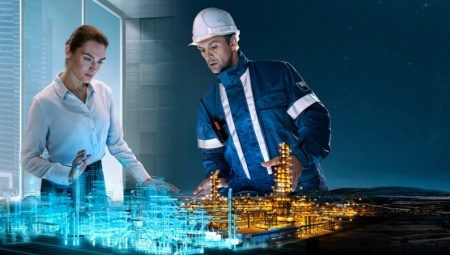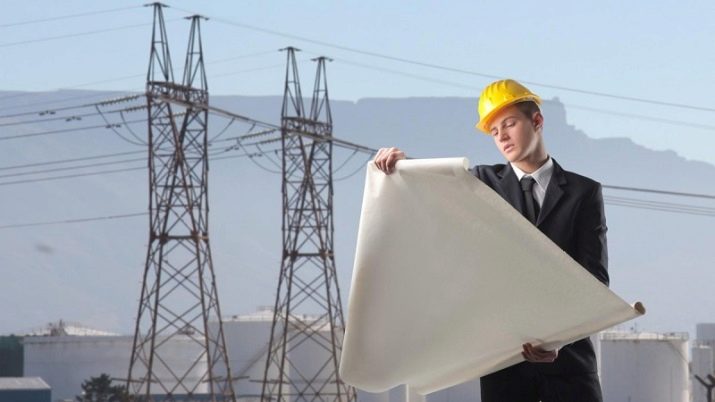Features of the profession of an energy engineer

The profession of an engineer is highly demanded and interesting. Representatives of this specialty are respected in society. However, not every person knows that there are a large number of highly specialized specialists who carry out their professional activities in the field of engineering. One of these specialists is a power engineer. Today in our article we will talk in more detail about the features of this specialty.
Description
An energy engineer is a person who, in the course of his professional activity, develops, produces, and also uses heat and power equipment (in this regard, these specialists are often called heat power engineers). This specialty is most often chosen by young people who are interested in the exact sciences, such as physics and mathematics, as well as drawing.
Energy Engineer can apply his knowledge and skills in various areas of human life... For example, such specialists often work in boiler houses and thermal power plants, power plants, research institutes, construction and industrial enterprises.
In general, this professional guarantees the energy security of the company in which he carries out his professional activities.

Advantages and disadvantages
Before finally connecting your life with the profession of an energy engineer, it is necessary to carefully study all the characteristics and distinctive features of this specialty. Like many other spheres of human activity, the work of an energy engineer is associated not only with its advantages, but also with some disadvantages.Only with a full analysis of the pros and cons can a final decision be made.
First, let's look at the merits of this position.
Demand
When choosing this profession, one should take into account the fact that energy specialists are in high demand in the modern personnel market of the Russian Federation. There is a lack of these specialists in almost every district of our country. If you have received the appropriate education and are applying for the position of an energy engineer, then you will not be left without a job.

High level of wages
It must be said that the level of salaries of specialists is quite different. It depends on the specific region (metropolitan specialists receive much more than provincial ones), as well as on the place of work (for example, in private firms you can earn much more than in state ones). Besides, an important role is played by the level of qualifications of a specialist, as well as his work experience. For example, a person with higher education and advanced training courses, who has worked for more than 5 years in this area, can count on a fairly high material remuneration for his work.
To complete the picture, you need to familiarize yourself with the shortcomings of the profession.
Irregular work schedule
When hiring an energy engineer, keep in mind that even though there is a formal work schedule, there may be situations where you have to work an irregular number of hours. First of all, this factor must be taken into account by those people who have a family and small children.
High workload
Due to the lack of energy specialists in some regions of our country, a large amount of work falls on the existing specialists. This explains the previous drawback - irregular working hours.

Job responsibilities
The power engineer carries out his work strictly in accordance with official documents. These include professional standard (or professional standard), as well as job descriptions. It is these documents that contain a complete list of all tasks (as well as their full characteristics) that a specialist must perform in the course of his professional activity. It is important to note the fact that this profession is included in the Unified tariff and qualification reference book of jobs and professions of workers in Russia (or ETKS). Let us consider in more detail what the chief (or leading) specialist of the department is doing and what is being done at the enterprise.
So, the direct functions of an energy engineer include:
- control over the supply and distribution of energy without any malfunctions or interruptions;
- inspections and (if necessary) adjustment of electrical systems and equipment;
- making calculations;
- control over the use and waste of energy by various divisions and departments of the organization in which he works;
- development and implementation of measures aimed at modernizing and improving the processes of using, supplying and distributing energy;
- interaction with colleagues, bosses, as well as representatives of other enterprises;
- control over compliance with all necessary norms and standards;
- design of electrical and heating networks;
- compliance with labor protection requirements;
- preparation and filling of accounting and reporting documents, estimates;
- purchase of the necessary equipment and much more.
This list of job responsibilities is not final. Depending on the specific place of work, as well as the wishes of the employer, some items may be added or deleted. Accordingly, before applying for a job as a power engineer, you need to learn in detail about all the responsibilities in order to make sure that you are able to perform them correctly and effectively.
It is important to consider here that for non-fulfillment or improper fulfillment of his duties, an energy engineer may be held liable (which is also provided for in the job description). Such liability can range from disciplinary to criminal.


Knowledge and skills
In order for a specialist who holds the position of an energy engineer to effectively and professionally perform his functions, the employer puts forward a number of requirements to him that relate to the required amount of knowledge and skills. Let's consider the main points:
- knowledge of regulatory legal acts, laws, by-laws of the Russian Federationthat regulate the standards for the operation of power equipment (the same applies to internal organizational documents, for example, orders, charters, orders);
- knowledge and ability to apply in practice all existing methods and ways of organizing energy management;
- knowledge of all technical and design characteristics of power equipment, as well as the rules and principles of its operation;
- skill troubleshoot and carry out repair work;
- skill to mount power machines and mechanisms;
- application advanced experience of Russia and foreign countries regarding the economical use of energy resources;
- ability to compose and read specialized drawings.
The above list is basic but not definitive. In order to stand out against the background of other job seekers in employment, as well as in the future to quickly move up the career ladder, it is desirable to have a large amount of professional skills, knowledge and skills.
On the other hand, it is necessary to take into account the fact that, in addition to professional requirements, the employer can put forward to the applicants and requirements that relate to personal characteristics and qualities.
So, often the employer in the job description, for example, indicates that the employee must be responsible, attentive, punctual, be able to work in a team, have high communication and leadership traits, strive to develop and improve.

Education
An energy engineer is a person who should know a lot and be able to. Before applying for this position, you must complete the appropriate training. Depending on the specific place of work and the requirements of the employer, you may need a diploma of graduation from a higher or secondary specialized educational institution. In this case, one should pay attention to such areas of training as heat power engineering, heat engineering, nuclear physics, construction, power engineering and other related specializations.
Depending on the educational institution and training program you have chosen, the period of education may vary, the minimum period is 3 years. Moreover, in the learning process, it is important to pay attention not only to theoretical training, but also to practices and internships. Thus, you will receive a complete education and key skills that will become indispensable in your professional duties.
Sometimes basic education is not enough. This is especially true if you want to move up the career ladder (for example, applying for the position of head of a department or head of an enterprise). In such a situation, among other things, you need to take the appropriate refresher courses.
In addition, in order to always stay abreast of all the latest trends, you need to constantly attend specialized conferences and seminars.









